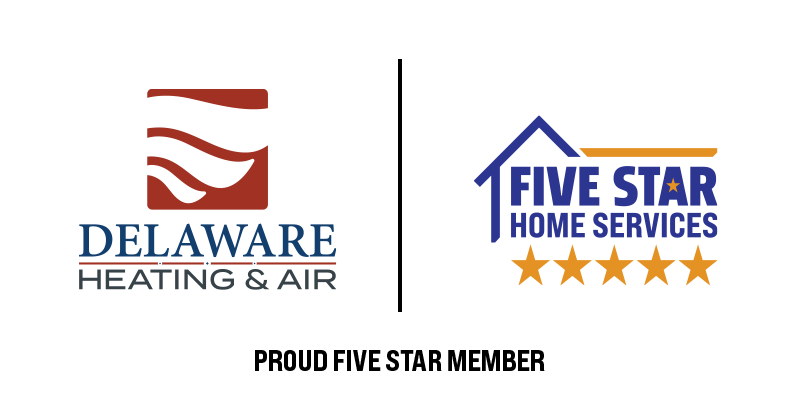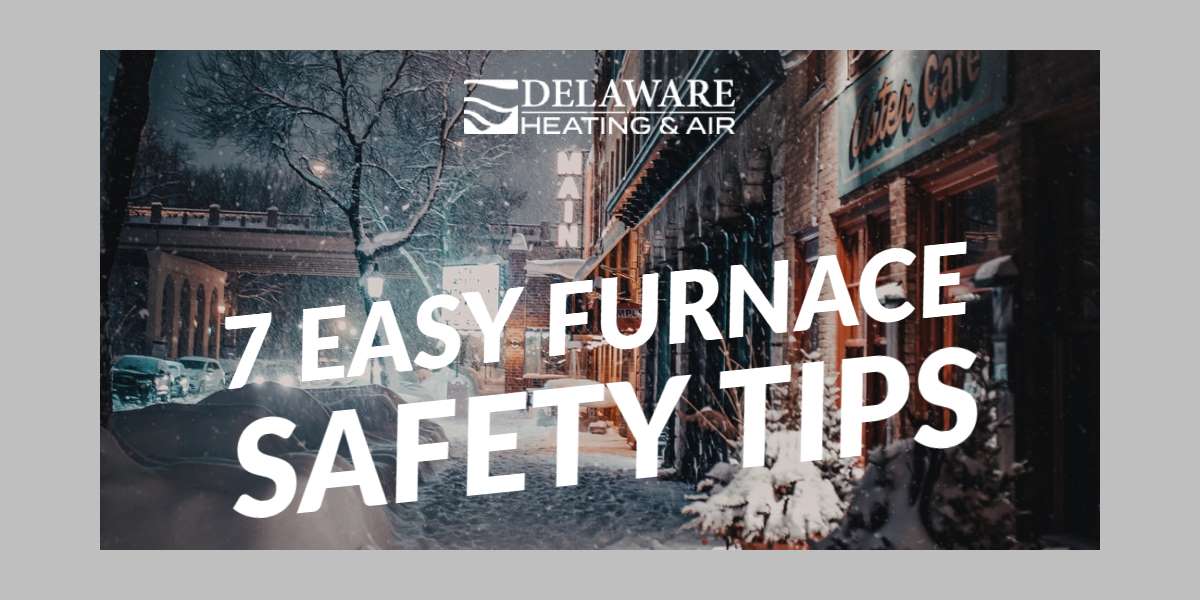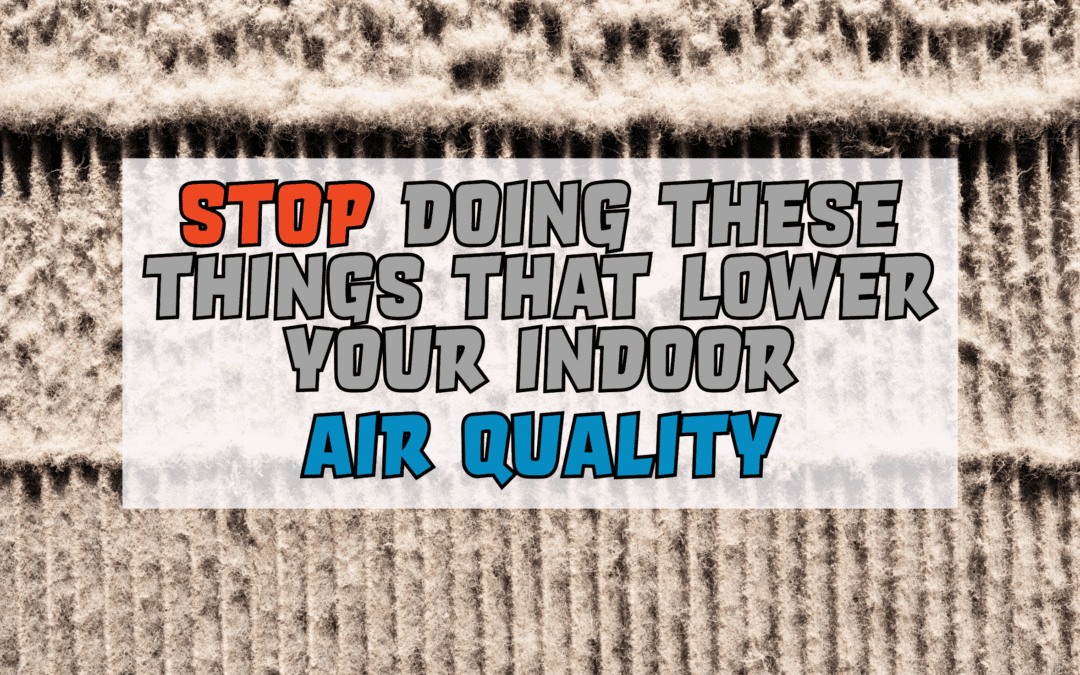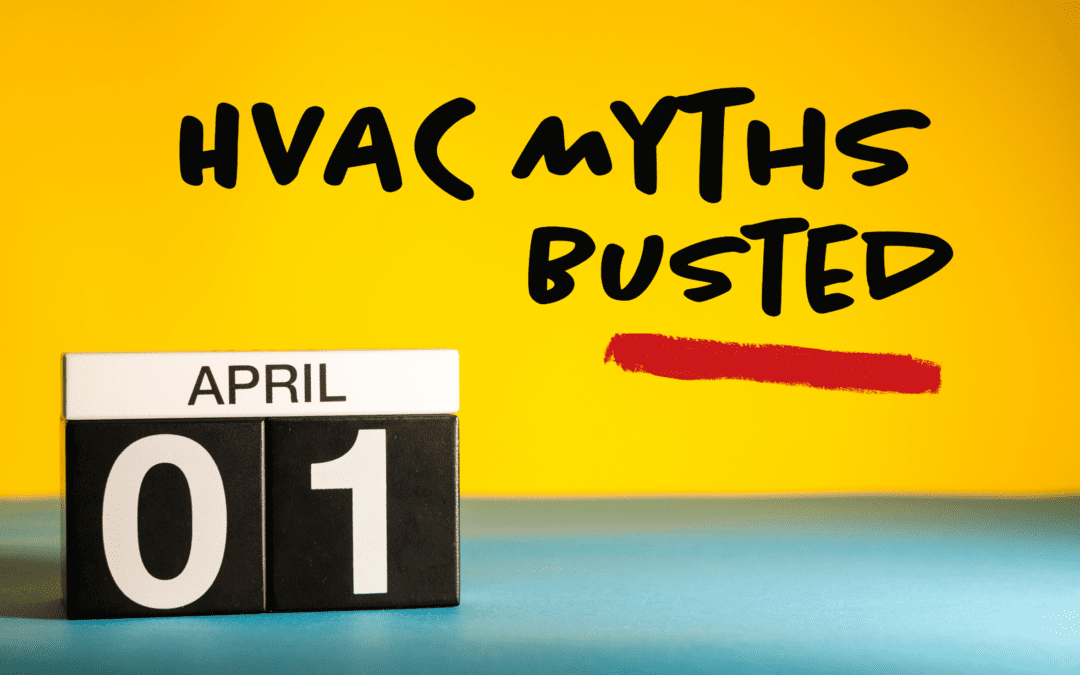When they are properly maintained and we use them with caution, our home heating systems do a wonderful job at keeping our homes nice and comfortable during the winter months.
Nevertheless, when it comes to any appliance that burns fuel or generates heat, they can develop problems that can become a risk to our health and safety.
To help you steer clear these kinds of problems and have a safe winter, we at Delaware Heating & Air present the following list of 7 easy furnace safety tips from our local HVAC technicians:
Make Sure Your Delaware County, Ohio, Home is Safe This Winter!
Consistent Seasonal Maintenance is a Must
Although your home heating system might seem like it’s operating nicely, with the heating season underway, that doesn’t mean you should skip out on maintenance this winter. If your home heating system hasn’t had a tune-up yet, keep in mind that it’s better late than never. Preventative maintenance enables a certified HVAC technician to inspect your furnace to make sure everything is operating safely and efficiently from bottom to top. Our friendly furnace technicians search for any and all sorts of concerns — everything from energy inefficiencies to leaking gas to heat exchanger cracks and damaged or burnt electrical wiring. They do an incredible job of identifying anything that might become a safety issue, or might be keeping your energy bills high. For this reason and countless others, furnace maintenance is well worth the trivial cost. After having utilized this great service, you can also enjoy peace-of-mind in realizing your home heating system is good to go for winter, all the while welcoming the added energy savings!
Replacing Furnace Filters
When you neglect your air filters, they can clog up and this impedes airflow. Proper airflow is essential to the function of a furnace or home heating system. For furnaces, this becomes not only unsafe but also expensive. The additional strain on the system forces it to strive to work harder, which spikes energy consumption and shortens its lifespan. Even more dangerous is the fact that when airflow is obstructed, it can make a home more likely to develop a carbon monoxide leak. Not to mention all this encourages the buildup of dirt on the system’s components. As such, we remind homeowners to make sure they are checking and changing their air filters monthly during the winter. For those who have reusable air filters, be sure to remember to wash it frequently.
Keep “Safe Zone” Around Your Furnace
Did you know you can reduce the chances of a house fire by keeping the area around your furnace free and open. We recommend a minimal three-foot radius surrounding furnaces and heaters. This means you shouldn’t store anything within three feet of it, like boxes or other items, if not more than three feet. This is extremely important to remember when it comes to items that might be considered flammable like household chemicals, fuel, paints, or aerosol.
Establish Written Set Safety Rules
This suggestion goes for anyone who has family members or friends living in the house with them, and especially anyone who has children in the residence. To ensure furnace safety in your home, make sure everyone who resides there understands the proper furnace safety guidelines for the home. We’d encourage you to write these down and post them on your refrigerator. Make sure children understand they shouldn’t play anywhere near the furnace or heater. Furnace rooms, in fact, should be “Kid Free Zones” that are off limits. To make sure everyone is on the same page, you should discuss emergency plans so everyone knows what to do in the event of an emergency. Written rules should include emergency contact information. In the event of a gas leak, make sure everyone knows where the valve is to shut off the gas furnace.
Testing Carbon Monoxide Detectors
Because carbon monoxide is such a serious safety threat, it would behoove a homeowner not to test all of their carbon monoxide detectors heading into the winter to make sure they are working properly. Furnace malfunctions are the cause of most carbon monoxide leaks. As such, homeowners need to individually test each of their carbon monoxide detectors. If necessary, we suggest installing a new pair of batteries in each unit if the batteries are getting old or their age is questionable.
Testing Batteries in Smoke Detectors
If a home heating isn’t running properly or there’s an issue quietly brewing behind the scenes, furnaces can become fire hazards quickly during the wintertime, perhaps even while everyone is sleeping. As such, in addition to keeping tabs on the furnace’s various components, fall and early winter is the time to test all of the smoke detectors in the home again. This should be done at least once every year. Like a home’s carbon monoxide detectors, homeowners need to check to see if they should install a fresh pair of batteries in each detector.
Give Us a Call If You Have Concerns!!!
We urge homeowners not to take any chances when it comes to any sort of fuel-burning appliance, or appliance that generates heat — let alone a furnace or home heating system. When it comes to the safety of our homes, it’s always best to err on the side of caution. As such, don’t hesitate to call our friendly professional team here at Delaware Heating & Air if you suspect that anything’s going wrong with your system. If you have any questions about these furnace safety tips, or if you’d like your home heating system/furnace maintained, serviced or a new one installed, call Delaware Heating & Air today at 740-227-8302, or schedule an appointment online now by clicking here!









